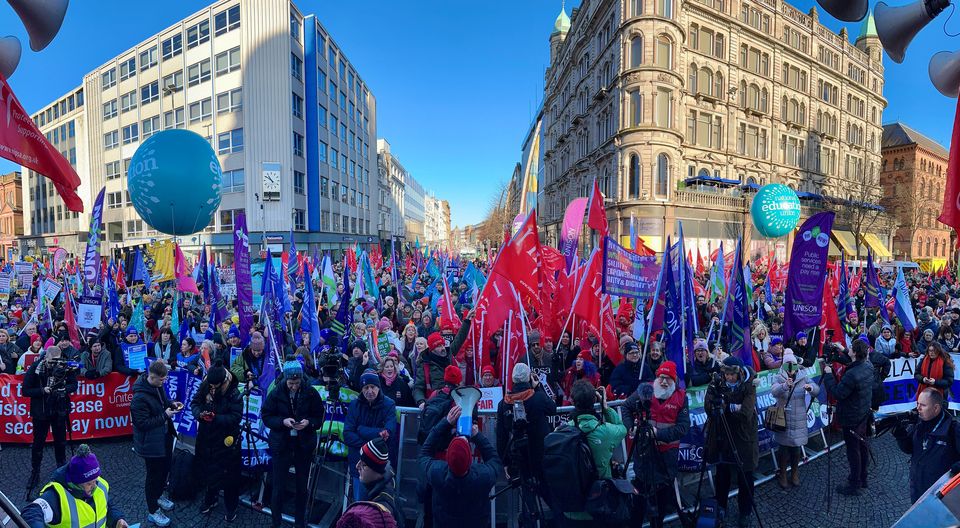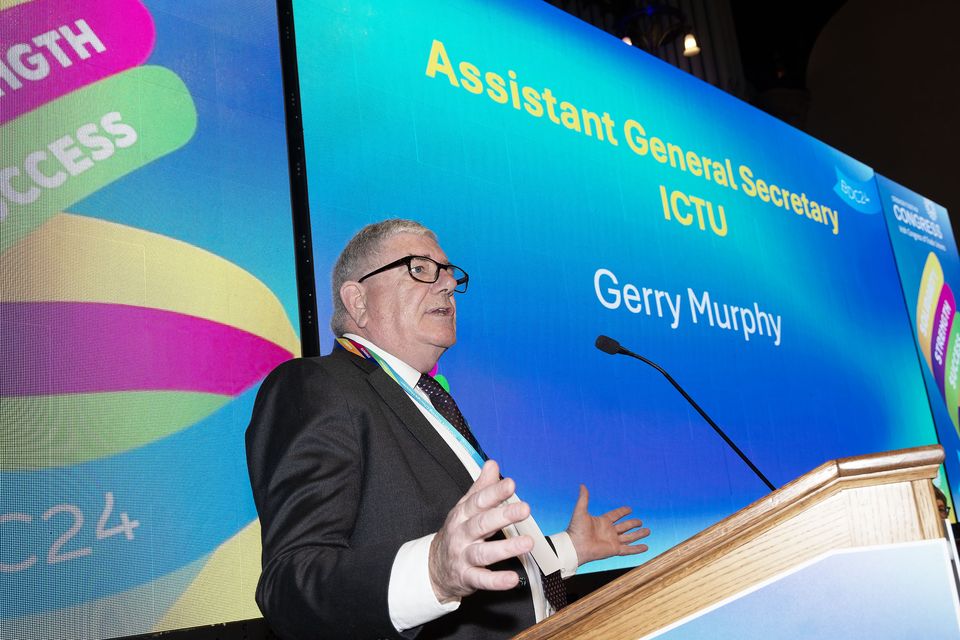First Minister Michelle O’Neill has been pressed by the trade unions over health worker pay.
Ms O’Neill and Junior Minister Pam Cameron attended the NIC-ICTU Biennial Delegate Conference at the Guildhall in Londonderry on Wednesday.
Some 200 union delegates and guests heard speeches and debated motions including over fair pay, jobs, supporting a Northern Ireland Employment Bill, as well as challenging racism and violence against women and girls.
Public sector workers take part in a rally at Belfast City Hall in January (Liam McBurney/PA)
At a time of pressure on the Stormont budget and a warning from Health Minister Mike Nesbitt that he has not been allocated enough money for pay, Ms O’Neill was lobbied by Unison workers over pay.
Mr Nesbitt has said he is £100 million short of the money he needs to make pay awards of at least 5.5% to all health staff.
Unison spokesperson Anne Speed said: “First Minister Michelle O’Neill told the conference that pay for public sector workers is a responsibility for the full Executive.
“Those words will guide our upcoming negotiations with Health Minister Nesbitt.
“We will engage but the agenda has to be about how the funding can be delivered, not on how we might accept less than the full implementation of the recommended increase.”
Meanwhile, in his address to the conference, ICTU assistant general secretary Gerry Murphy paid tribute to the union members who took strike action over the past two years.
Gerry Murphy, ICTU assistant general secretary, speaking at the NIC-ICTU Biennial Delegate Conference 2024 (Kevin Cooper/PA)
The action culminated in an estimated 170,000 public sector workers taking part in combined strike action on January 18.
“Your decision to withdraw your labour on that single day demonstrated that public servants are the backbone of the economy,” he said.
“That the services you provide are essential for every person and that the state can’t function without you
“No bus drivers. No classroom assistants. No social workers. No physios. No trains. No radiographers. No school meals. No vets. No civil servants to assist the public.”
Mr Murphy told the conference that the next step for unions would be to lobby and campaign for new Northern Ireland employment legislation.
“There is nothing in the improvements we wish to see that is not already common in the best workplaces, and especially in those countries we are encouraged to think of as competitors,” he said.
“Not all races have to be to the bottom. What is good enough for the most productive workers in western Europe is good enough for those you represent too.”

